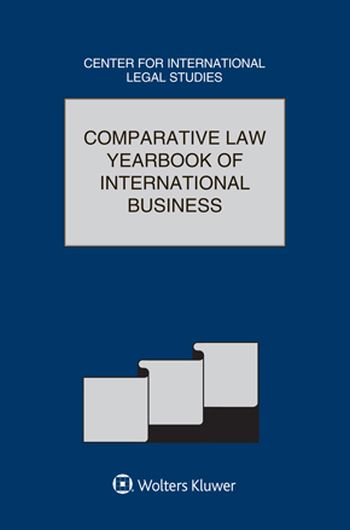We will be closed from 5pm Thursday 17th April for the Easter Bank Holidays, re-opening at 8.30am on Tuesday 22nd April. Any orders placed during this period will be processed when we re-open.

Comparative Law Yearbook of International Business, published under the auspices of the Center for International Legal Studies and currently in its 43rd volume, spans an arc of timely and challenging concerns for business law practitioners and academics alike discussing the arbitrability of intellectual property rights disputes that might improve worldwide IPR enforcement and “disregard of legal entity” that may be to establish implied consent by a person or entity that is not a signatory to an arbitration agreement. This volume aims at substantive research and consideration towards encouraging businesses to consider alternative aims, market participants to espouse alternative values, and the securities market regulation to shift towards a more balanced approach.
This book authored by practitioners and academics from Brazil, England, France, India, Pakistan, Singapore, the United States, and Uzbekistan sheds light on the following:
Although businesses are increasingly global, financial distress is confined by jurisdictional boundaries. One of its kind, this volume furnishes a broad and diverse perspective on some of today’s pressing business law issues in a shrinking world and encourages the development of policies at national and international levels.